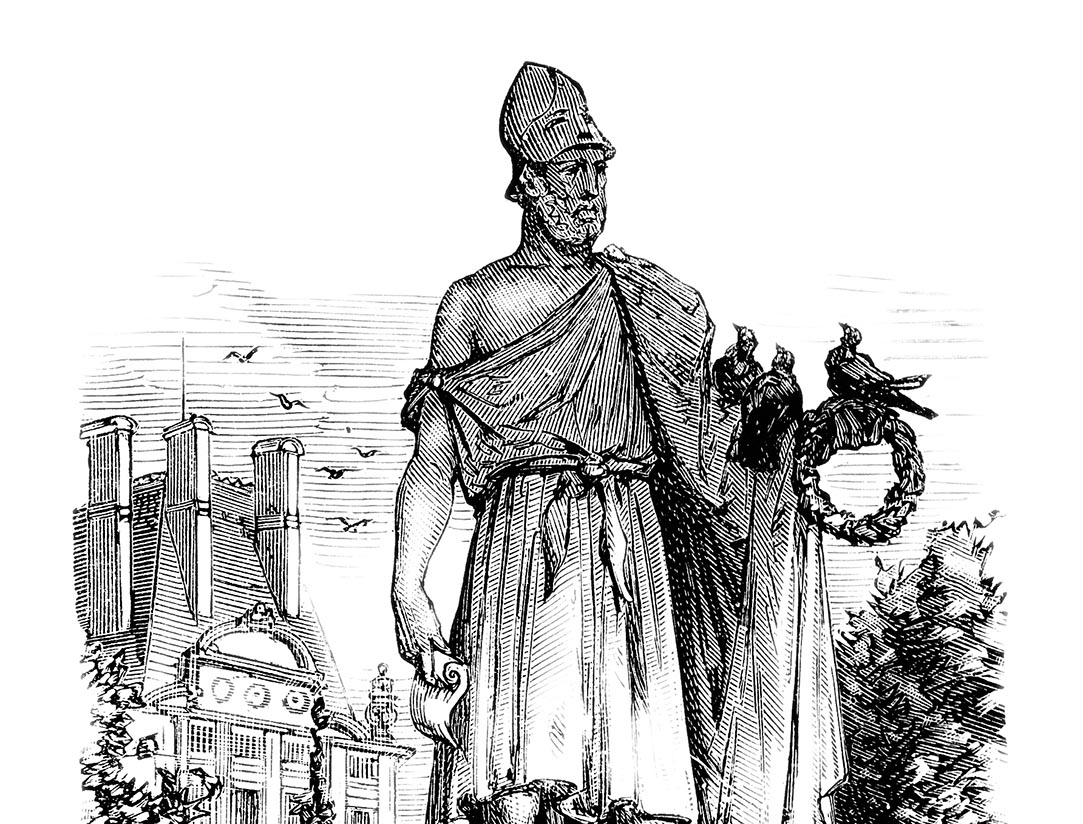Great Hearts is a non-profit charter school network serving 16,000 students in Arizona and Texas. Our 28 K-12 academies offer a classical program alongside robust extra-curricular programs, creating a transformative experience for our students.
We believe that the highest goal of education is for students to become good, intellectually and morally.
Having said that, it might be strange to learn that there is no “character curriculum” at Great Hearts. The character curriculum is the school itself.
This is true of every school, for better or worse. What kind of art is in the hallways? How do the kids talk to one another in the lunchroom and then in the classrooms? How do the teachers befriend each other and serve the kids? How do we address struggle and suffering? How do we honor excellence? Is the culture of the school unified by a mission? The answers to these questions reveal the “hidden curriculum” of character in any school.
In a school the lack of a mission becomes a mission— the vacuum of time, space, and meaning is always being filled by something, often anything. If educators and school leaders don’t fill a school campus with intentional purpose it becomes filled with unintentional confusion and cultural chaos. There is no such thing as an innate, happy, peaceful state of rest for any school.
At Great Hearts we view our intentional purpose as a restoration of a way of forming the habits and the tastes of the young that was once the hallmark of producing free citizens of a republic. Far too often the liberal arts are mislabeled as something archaic, impractical, or exclusive. Classical education stands out in public education today because, as one of our valedictorians put it, others have sat down.
The essential question—what does it mean to be a human being?—is the rightful inheritance of every child to address afresh. As such, liberal education should be both free and freeing. We love being inclusive public charter schools and working to fulfill Mortimer Adler’s anti-elitist proclamation that the “best education for the best is the best education for all.” The classics are inclusive and utterly scalable, and we Americans make them exclusive or private at our peril.
We believe a unified, coherent liberal arts education has the best chance of forming students who are happy and virtuous. The liberal arts tradition of the West allows us to confidently use terms such as virtue and truth without turning to religious doctrine. An education that assumes the reality of philosophy and forming character—just as much as it believes in the reality of chemistry, geometry, and economics—can work for our generation and within public education. In fact, public education is the rightful domain of such an approach. Like Socrates teaching in the public square in Athens, we must humbly submit that there are better and worse answers, and right and wrong answers, to how to live well and to how to pursue justice.
Character involves saying “yes” to a larger truth or beauty that encompasses and surrounds the self. Forging character involves the moral autonomy of the individual to make free decisions on behalf of what he or she loves, to make private decisions when no one is looking, to defer desire for something they find ultimately compelling. Simply put, character is when creeds have become life convictions, when integrity becomes freedom. As the ancient Athenian statesman Pericles described the virtues of a free democracy and its citizens as, “. . . knowing the secret of happiness to be freedom, and the secret of freedom a brave heart.”
In the spirit of Pericles we named our public charter organization Great Hearts. It is a reminder to us of our heritage of freedom. But it also is a reminder to us of what we want our students to have, and who we want our students to be, as we inspire our students to fulfill their calling and prepare for the adventure ahead.

